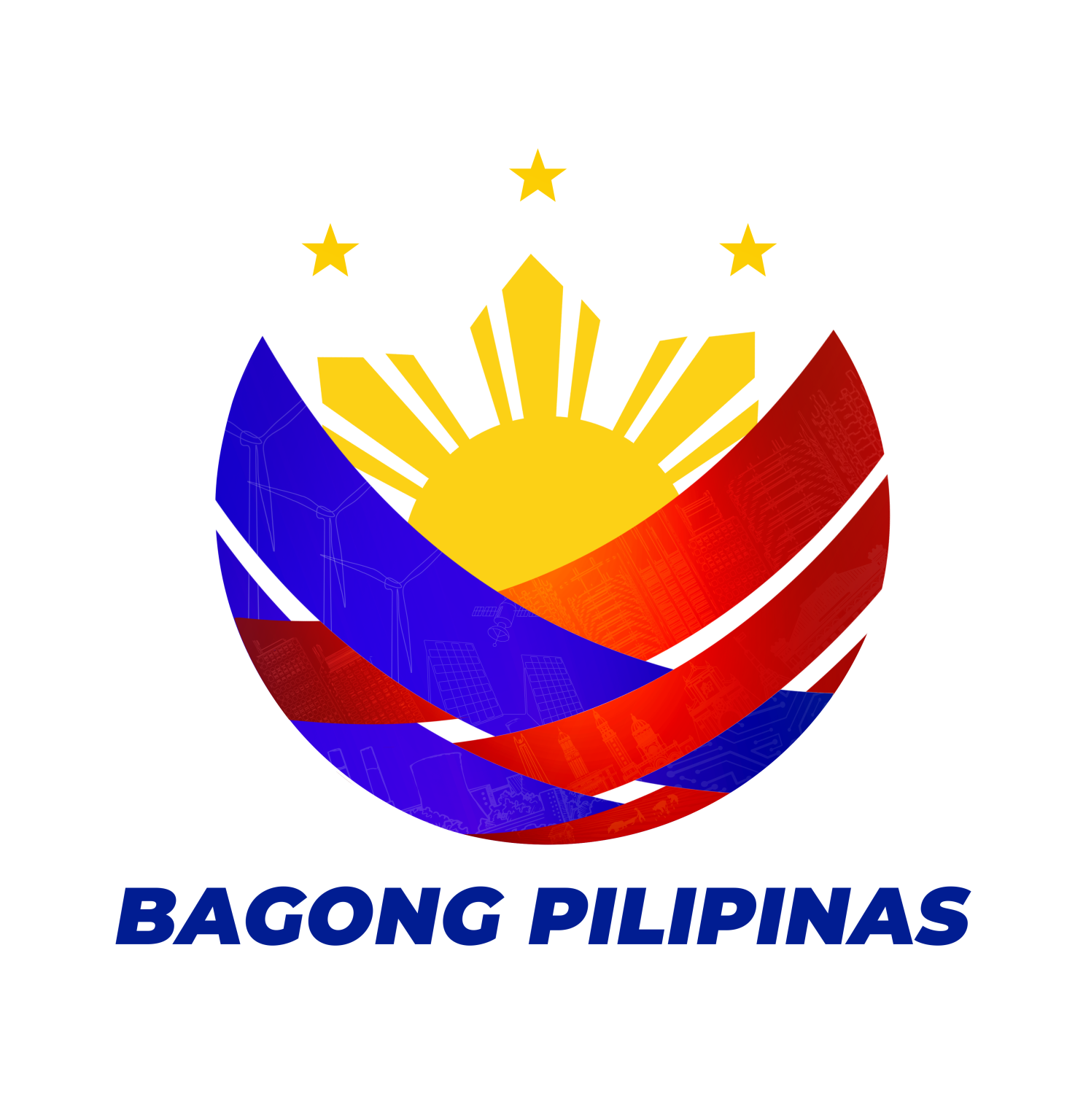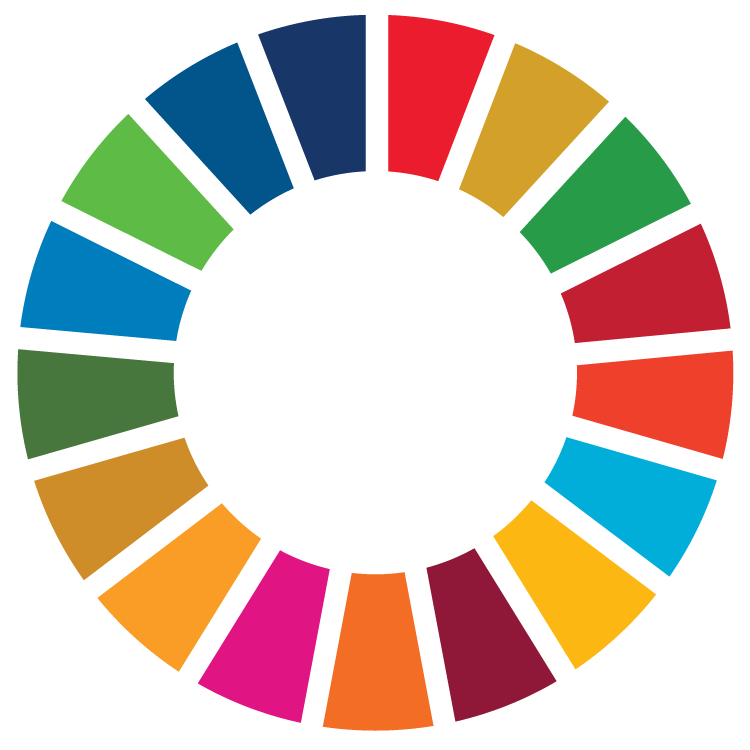By: Prof. Ken Russel Z. Gutierrez
A community long left to fend for itself sees hope in an unlikely ally: college students.
MORONG, Rizal – In a sitio where many families live on the fringes of town—and of society—the College of Science (COS) of the University of Rizal System (URS) has launched an initiative that is slowly redefining what it means to extend education beyond the classroom.
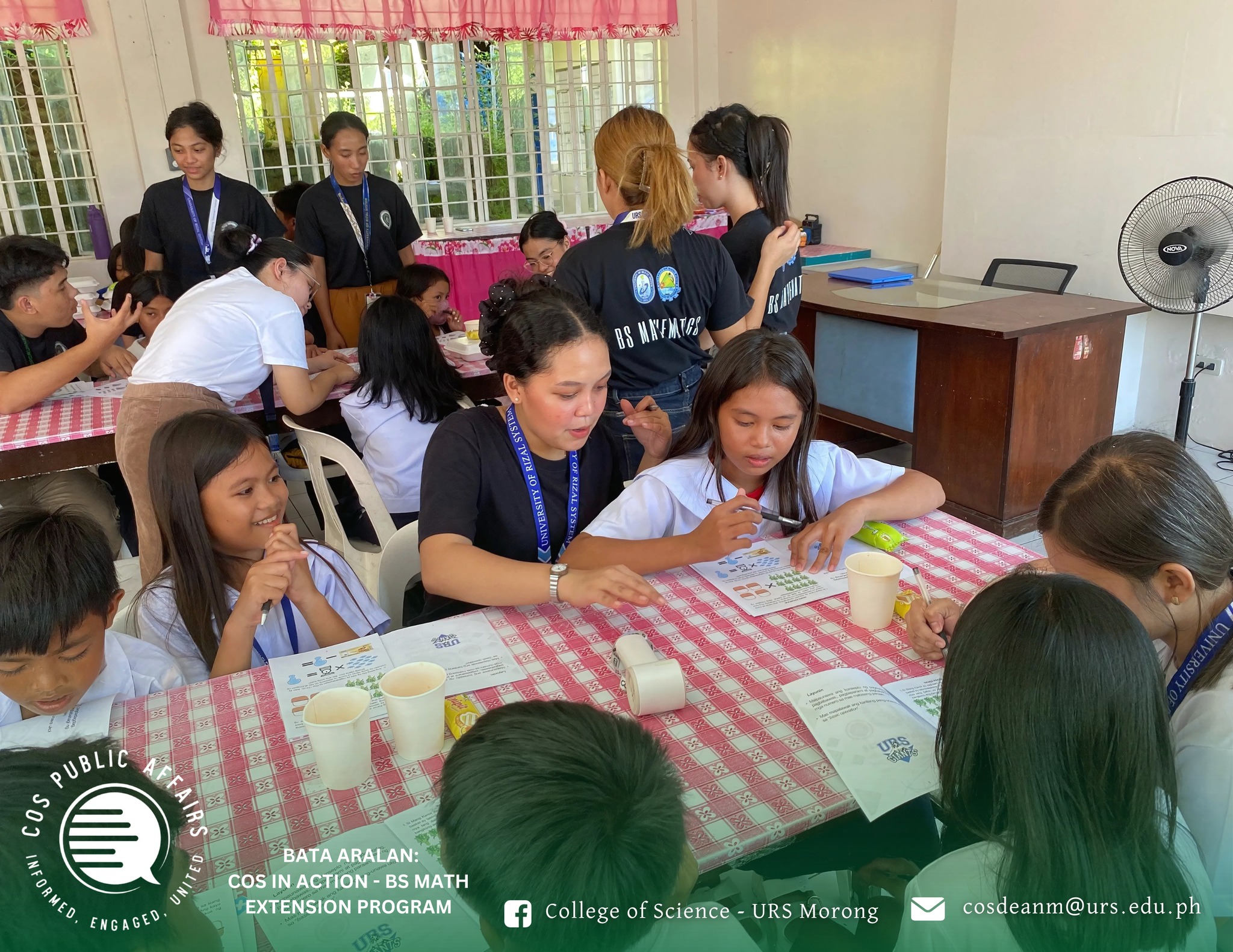 Purok Pulo, a modest cluster in Sitio Caniogan, Barangay CCL, is now the beneficiary of “Bata Aralan”, an education-focused extension program under COS’s Adopt-a-Community initiative. Helmed by Dr. Florencia V. Bautista and powered by students from the BS Mathematics program, the project quietly began in 2022 with little fanfare and the even taller task of addressing long-ignored gaps in literacy, livelihood, and dignity.
Purok Pulo, a modest cluster in Sitio Caniogan, Barangay CCL, is now the beneficiary of “Bata Aralan”, an education-focused extension program under COS’s Adopt-a-Community initiative. Helmed by Dr. Florencia V. Bautista and powered by students from the BS Mathematics program, the project quietly began in 2022 with little fanfare and the even taller task of addressing long-ignored gaps in literacy, livelihood, and dignity.
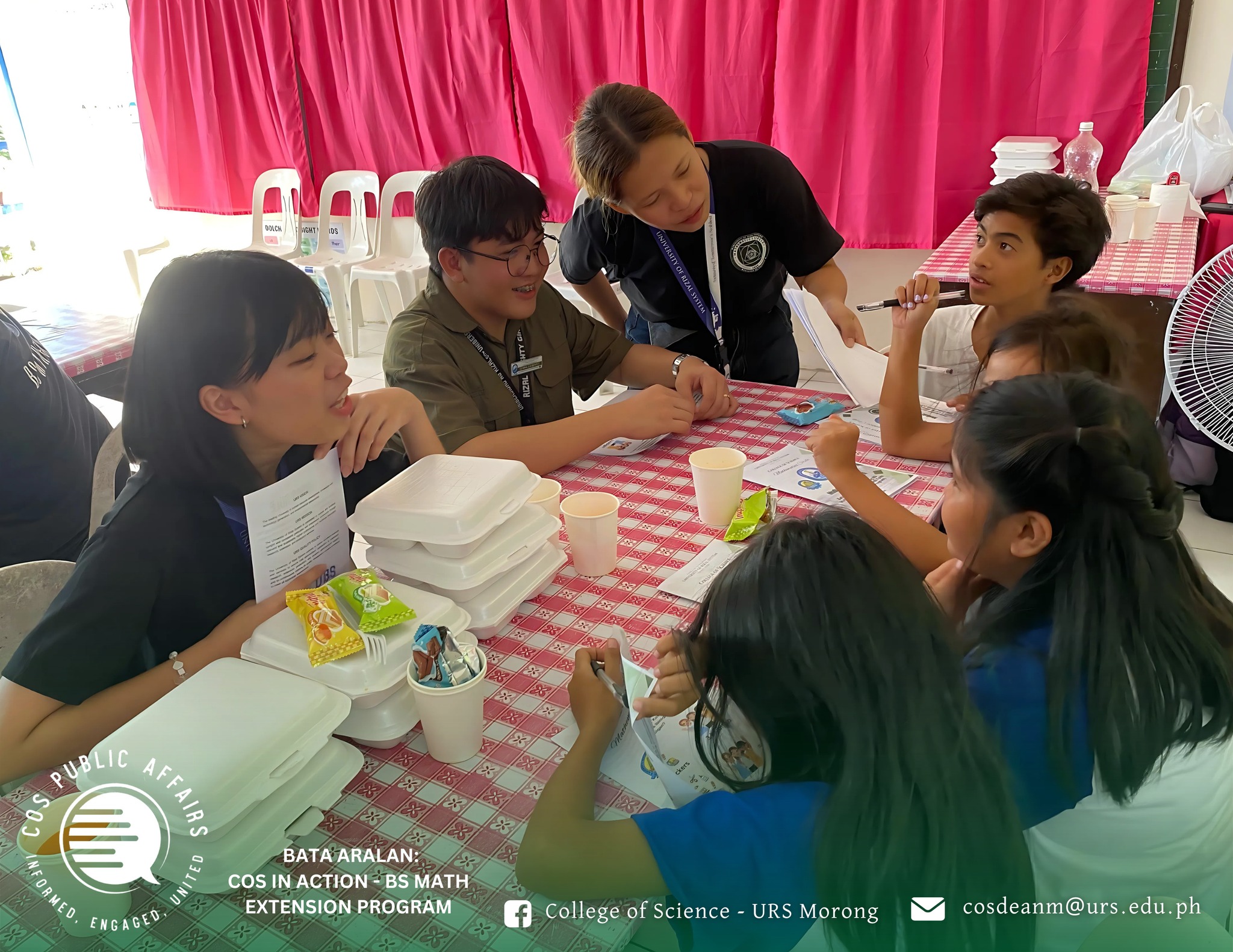 Many of Purok Pulo’s 60 or so families are informal settlers—migrants, day laborers, young mothers, and elderly residents—living without regular access to basic services. For years, education for many of their children has been inconsistent at best, non-existent at worst.
Many of Purok Pulo’s 60 or so families are informal settlers—migrants, day laborers, young mothers, and elderly residents—living without regular access to basic services. For years, education for many of their children has been inconsistent at best, non-existent at worst.
Despite this, no major government or private institution had stepped in, until the COS’s “Project LIFE” (Living Intelligently with Faith and Enthusiasm) placed the site on its map.
“Alam naming hindi sapat ang pagtuturo lang,” said one project volunteer during a recent evaluation meeting. “Kaya nagdala kami ng pagkain, damit, kahit sapatos—kung ano lang ang kaya naming ibigay.”
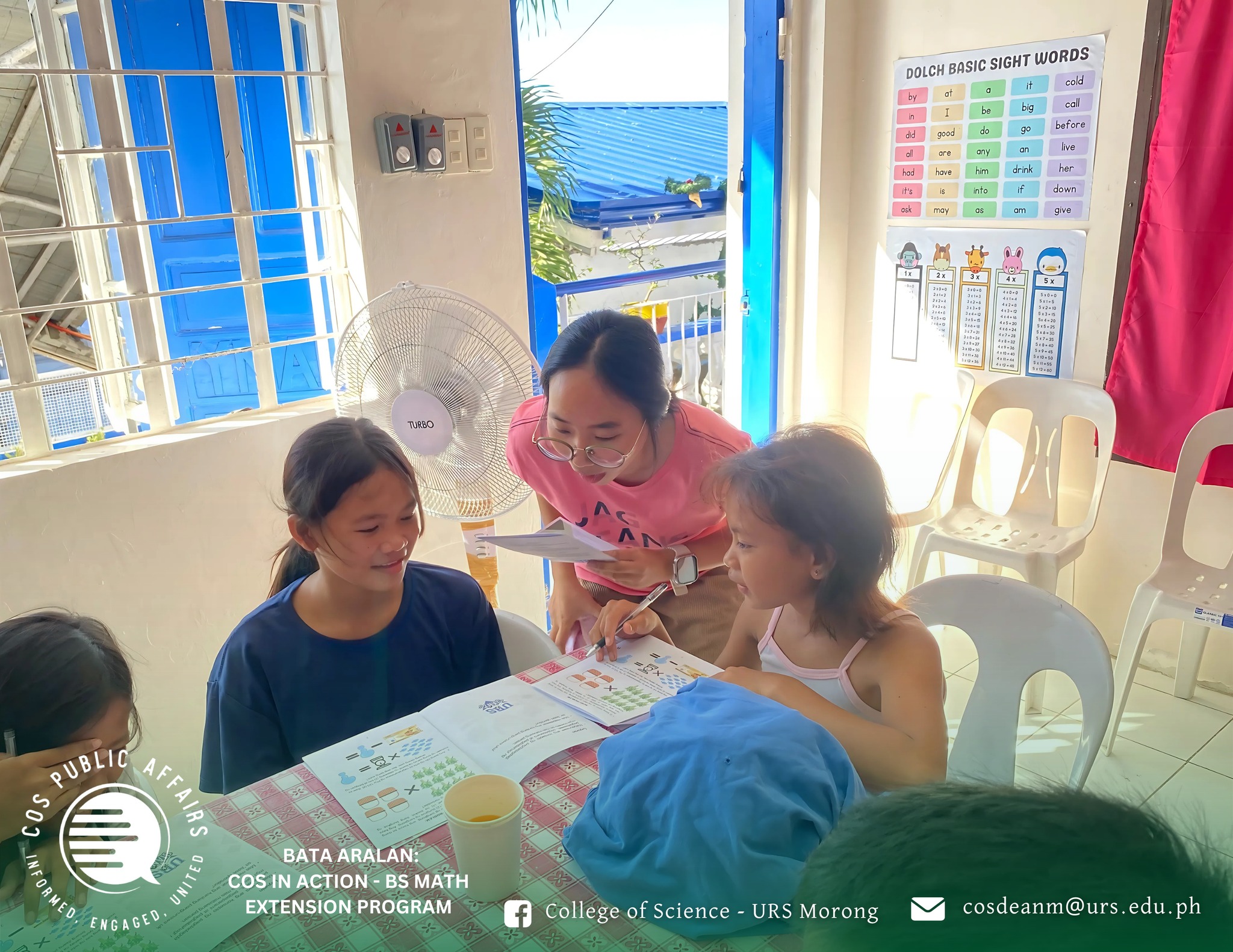 While it began as a simple literacy tutorial project, Bata Aralan evolved into a broader response to structural neglect. It now includes psychosocial support, health awareness, and livelihood discussions—driven by a social exchange framework that sees mutual respect and empowerment as prerequisites for change.
While it began as a simple literacy tutorial project, Bata Aralan evolved into a broader response to structural neglect. It now includes psychosocial support, health awareness, and livelihood discussions—driven by a social exchange framework that sees mutual respect and empowerment as prerequisites for change.
Interestingly, the project’s most visible impact isn’t only in rising reading levels or increased school attendance—it’s in the shifting dynamics of how the community views outsiders.
“Hindi sila tulad ng iba na bigay lang tapos alis,” one resident said. “Nakikinig sila. Tumatagal sila rito.”
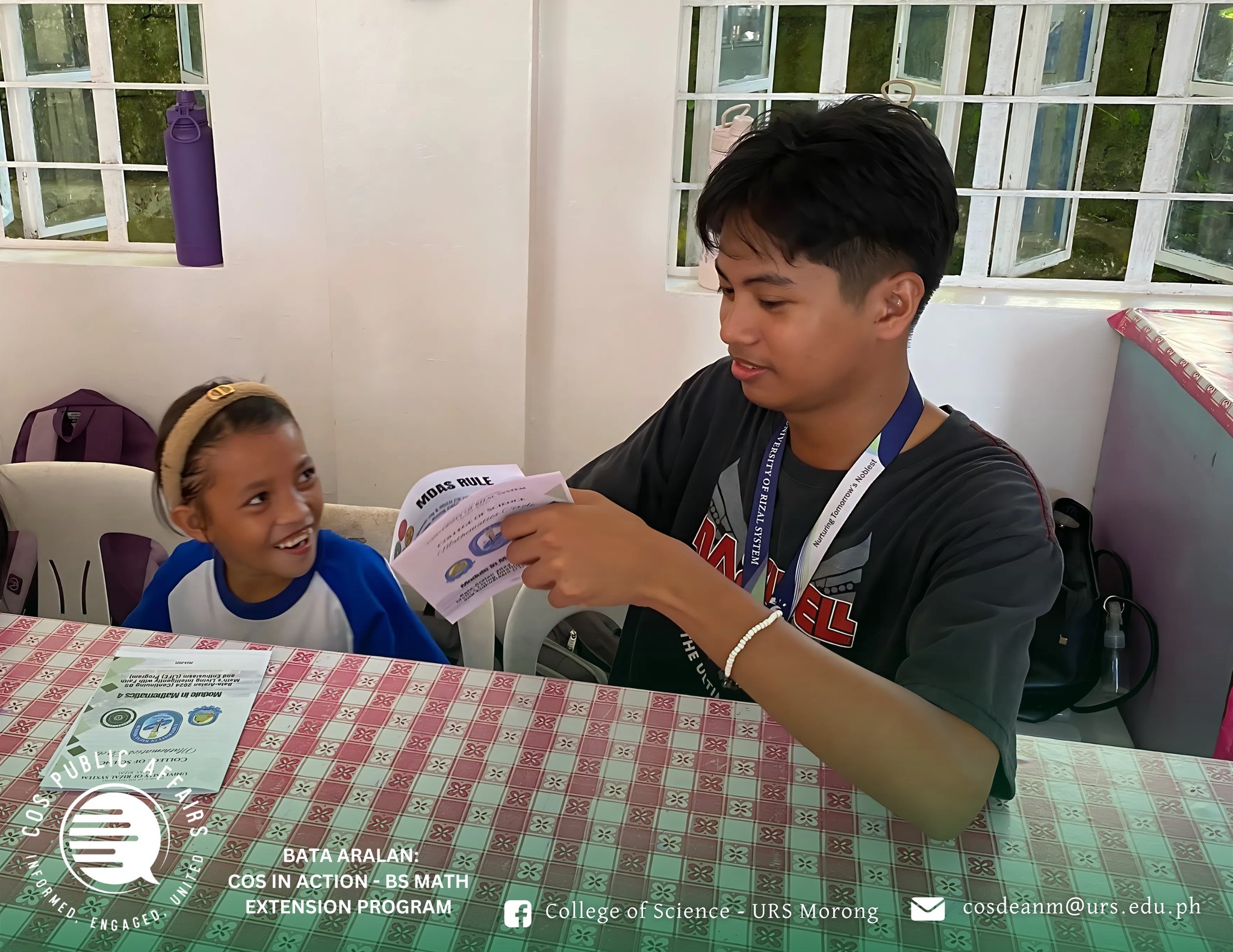 The project’s phases—from needs assessment to implementation—are backed by data, empathy, and a long-term view. Still, the odds remain stacked. Resources are limited, and like many academic initiatives, the burden of sustainability looms.
The project’s phases—from needs assessment to implementation—are backed by data, empathy, and a long-term view. Still, the odds remain stacked. Resources are limited, and like many academic initiatives, the burden of sustainability looms.
As Bata Aralan continues its run through December 2024, the question lingers: What happens when the students graduate, the project winds down, and institutional memory fades?
For now, the COS remains present. Whether that presence will be enough to catalyze lasting transformation in Purok Pulo is a test both of the community’s resilience and the university’s resolve.
 Photos courtesy of College of Science Public Affairs Facebook Page:
Photos courtesy of College of Science Public Affairs Facebook Page:
https://drive.google.com/drive/folders/132KzVX3BFjS24esthQHjrbWZI4H2q9T5?usp=sharing
